Inside Khwai Reserve • Your Ultimate Botswana Safari Guide

The Khwai Community Reserve in Northern Botswana offers phenomenal gave viewing for the fortunate few that make their way to the part of the world. During our overland trip across Africa, we had learned of its regard in the overland community and bush loving South Africans. Most notably it is known for frequent African wild dog sightings. One of Africa’s most endangered and treasured predators, and one of our favorite safari animals.
The beauty of reserve that sits on the border of the Okavango Delta and at the entrance of Moremi National Park is not just a prime spot for elusive species like wild dogs, but many of Africa’s wildlife. It’s a unique habitat for lions, elephants, rare antelope (roan and sable), hippos, and leopards. What’s possibly most interesting about the Khwai Concession is that it is community-owned.
A Safari in Khwai with African Bush Camps

With a week in Botswana, we were beyond excited to spend time with African Bush Camps at their Khwai Bush Camp, Linyanti Ebony, and Linyanti Expeditions camps. Best of all we had a number of their expert guides to lead us through the bush. In Khwai, Chief, our guide shared his expert insight into the wildlife.
Our first day we asked about the wild dog population in the area — he seemed confident we’d see a pack at least. It was just an hour later as we drove 100m away from the camp across the water hole and in full view of our tent that we found a pack of wild dogs laying in the shade.


It was a pretty good way for the first five minutes of our safari in Botswana to start. The trip only continued to supply us with beautiful moments and wildlife encounters. Within then next few days we would see animals like leopard, elephants, buffalo, hippo, giraffes, and many species of antelope.



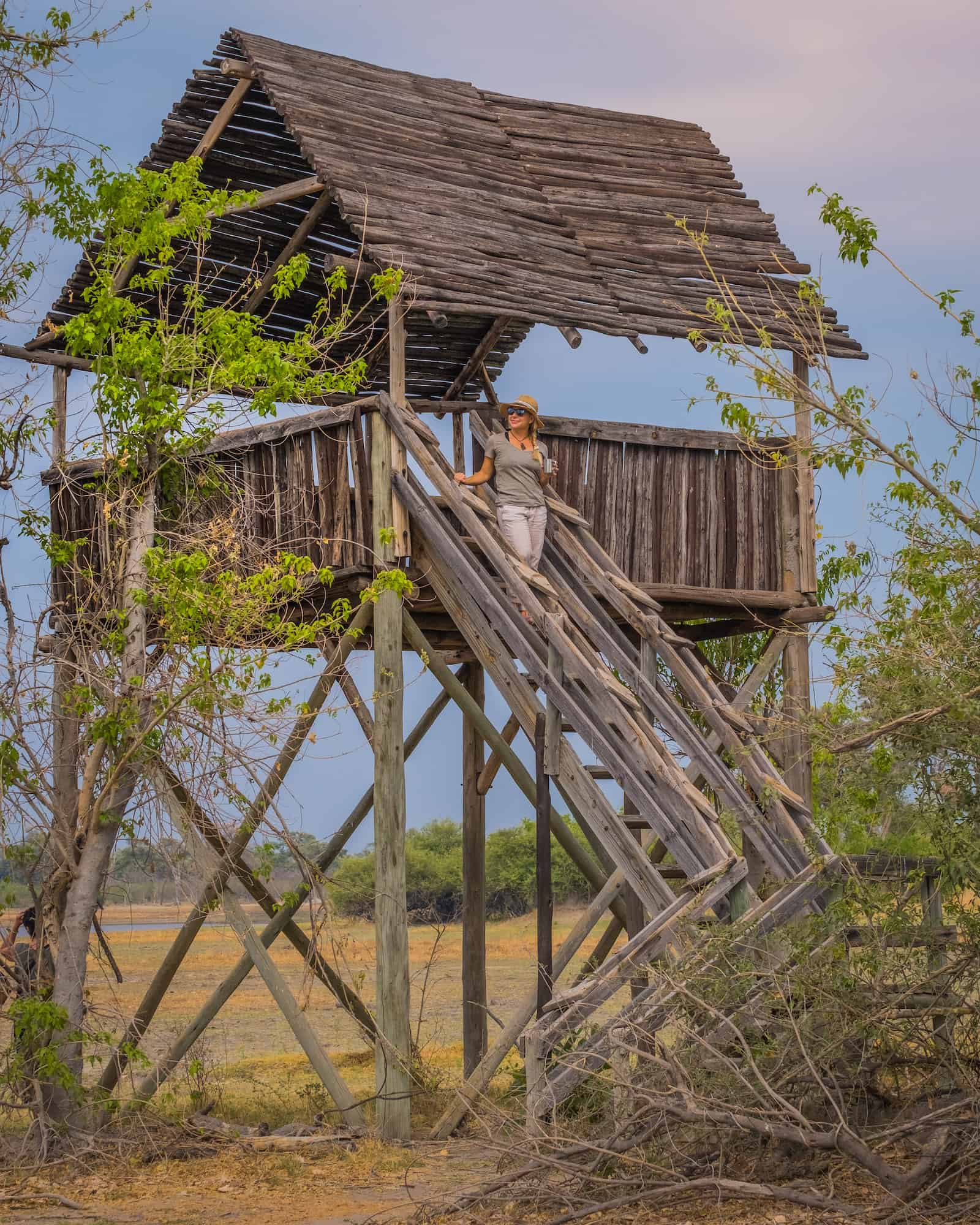

As Khwai sits at the gate of the Moremi National Reserve and the fringes of the Okavango Delta, the region offers some interesting landscapes that blend between riverine wetlands and woodland.
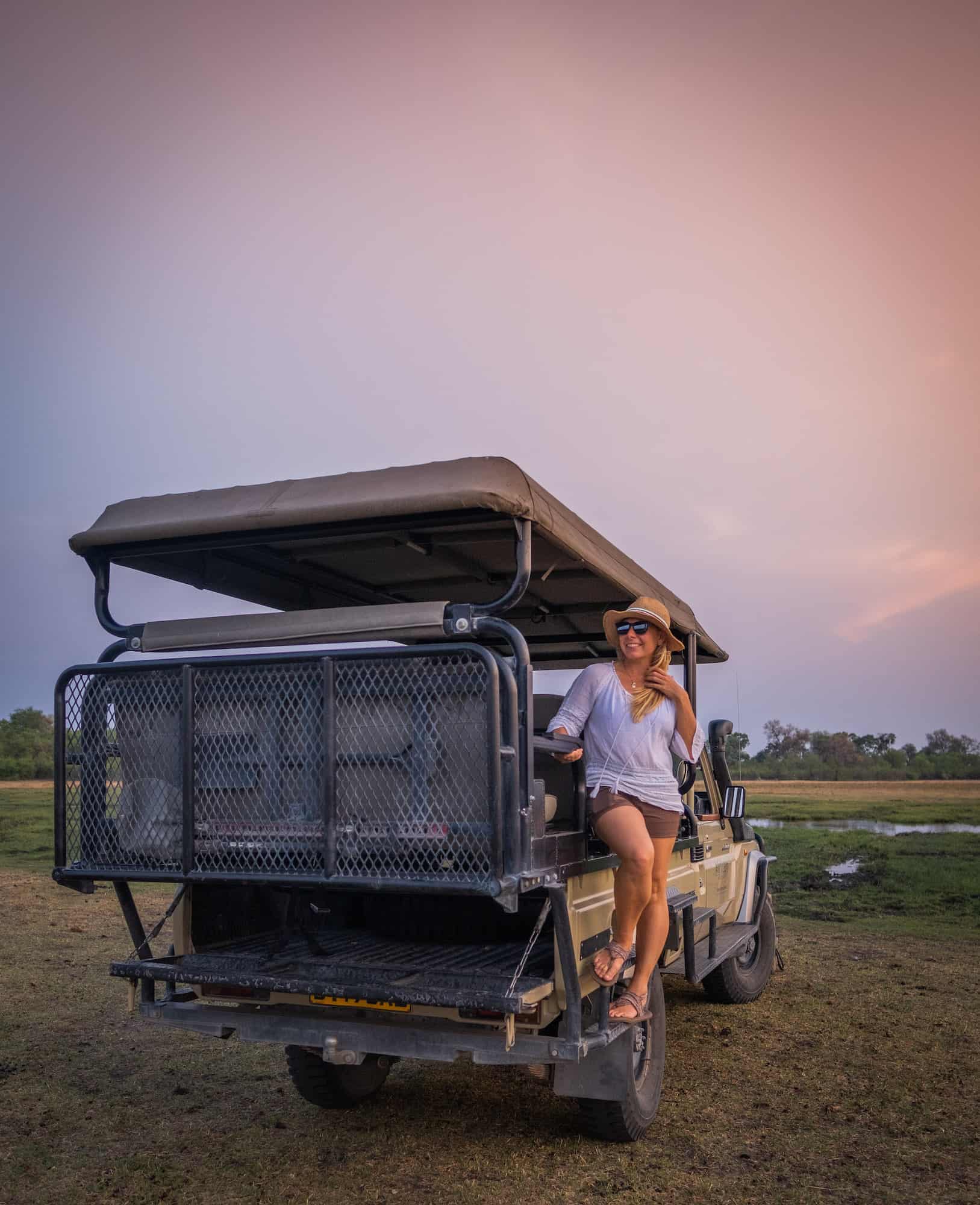
There’s no way better to experience this wetland than a mokoro ride in a channel of the Khwai River. A mokoro safari is a quintessential safari experience in Africa and originates from the Northern Botswana tribes who used the small boats to navigate the Okavango Delta and surrounding rivers.
Now guests can enjoy the peaceful experience as they glide past reeds and water lilies in the Delta. It’s usually a reflective moment that heightens your senses while you look for the small painted reed frog or listen for the onery hippos.
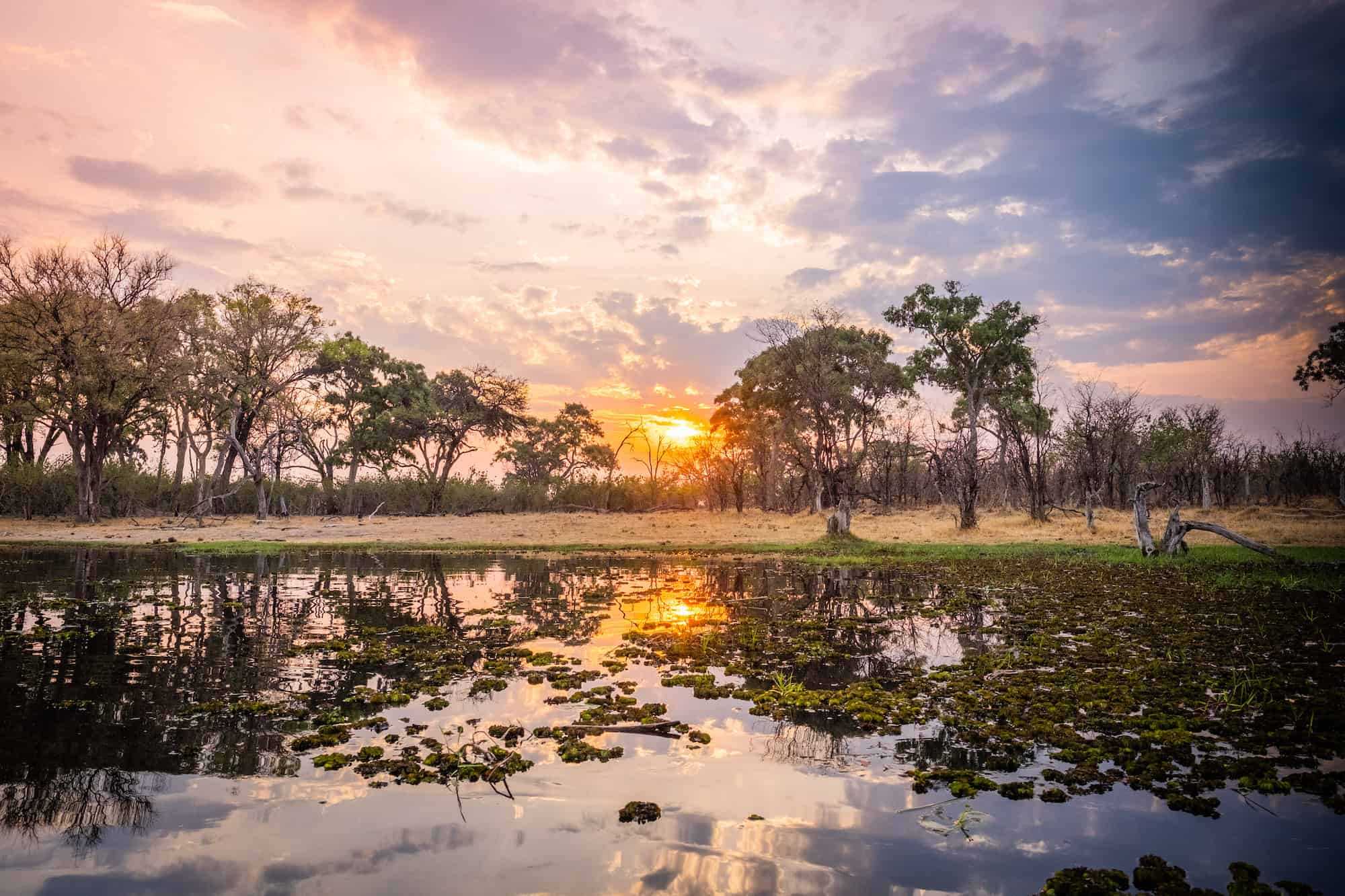


We had enjoyed a mokoro ride before, but our Khwai mokoro safari is one to not be forgotten. Upon setting off on our mokoro safari we entered a wide channel flanked by two families of elephants. We approached them in a fluid motion as our experience poler (mokoro operator) placed us within safe proximity to the elephants bathing in the water. As yet another group of elephants approached they flushed a male lion who came out of the woodland for a drink of water.
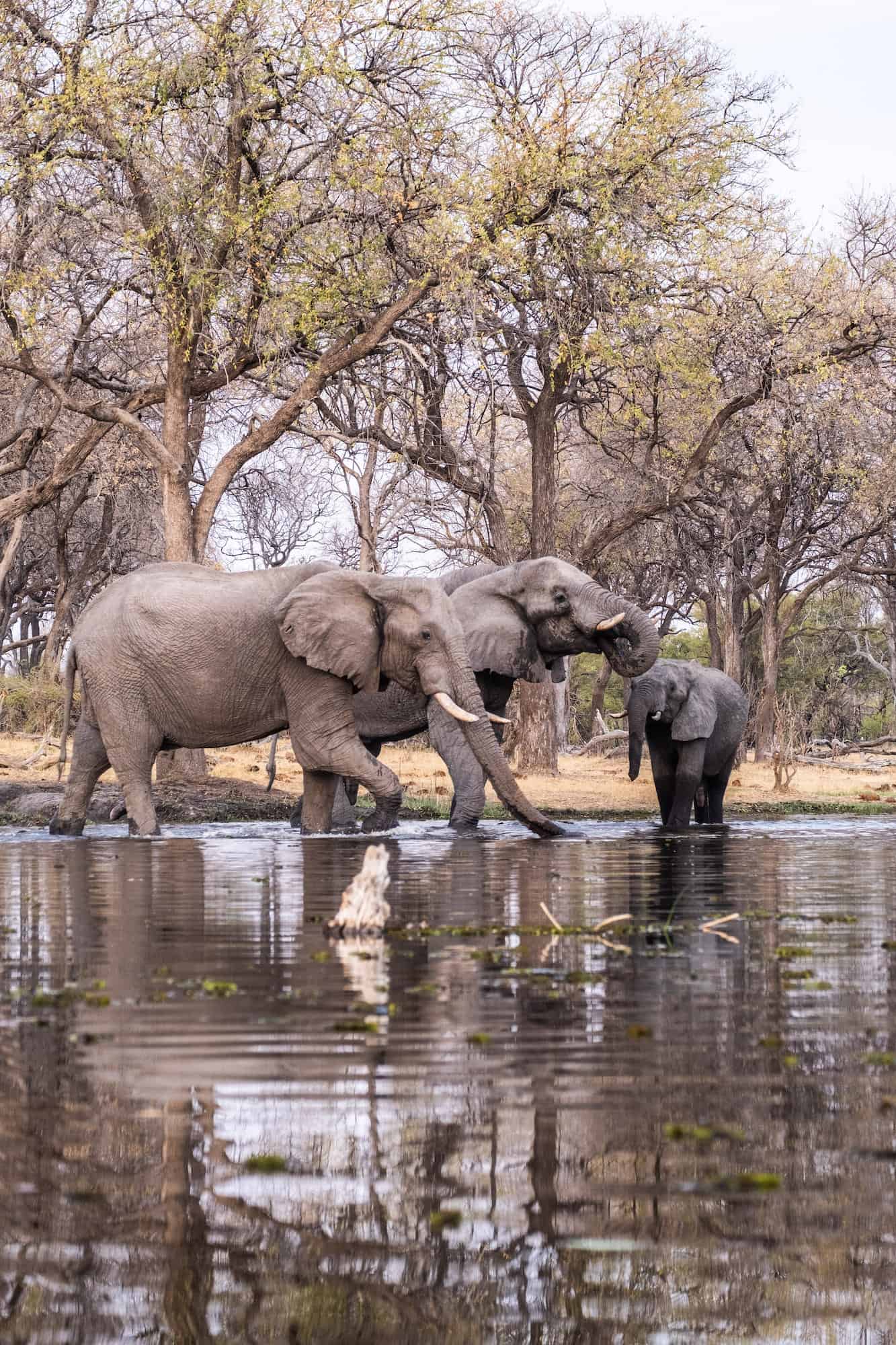



The moment we had twenty elephants at our back and a male lion lapping water in front of us was serene. It will easily go down as one of the most incredible wildlife experiences we’ve had in the bush.
It’s moments like that where Khwai and the Okavango Delta gain their fame. The gorgeous moment was only better as we poled back to the riverbanks to find a beautiful bush bar waiting for us to relive our experience with a gin & tonic in hand.


While the National Reserve places more stringent rules on visitors the Khwai Concession allows for off-roading, bush walks, and night game drives. After the wonderful mokoro ride, we found ourselves on a night game drive back to the camp looking for nocturnal animals who come alive at night.
This is the stuff of great safaris because to have a truly magical moment it requires more than being in the right location, but to have the ever-present hand of an experienced lodge and company leading the way. Most importantly it comes to the quality of the safari guides, Chief was no exception. He was a wonderful host who made sure not only that we had a good time, but was quick to answer any question that came his way.



The Khwai Concession


The Khwai Concession is community-owned and operated. It was established to help support the impoverished communities through the park proceeds and supply jobs to the local community. When you visit the Khwai village you understand the needed support for the community, as it is little more than a few huts and simple buildings. Which they’ve opened up for visitors to visit and forfeited the ability to farm or ranch as land is used for wildlife.
At 180,000 hectares the concession is quite a large swath of land. It’s location puts it on the fringes of the Okavango Delta between the Chobe National Park and Moremi Game Reserve.
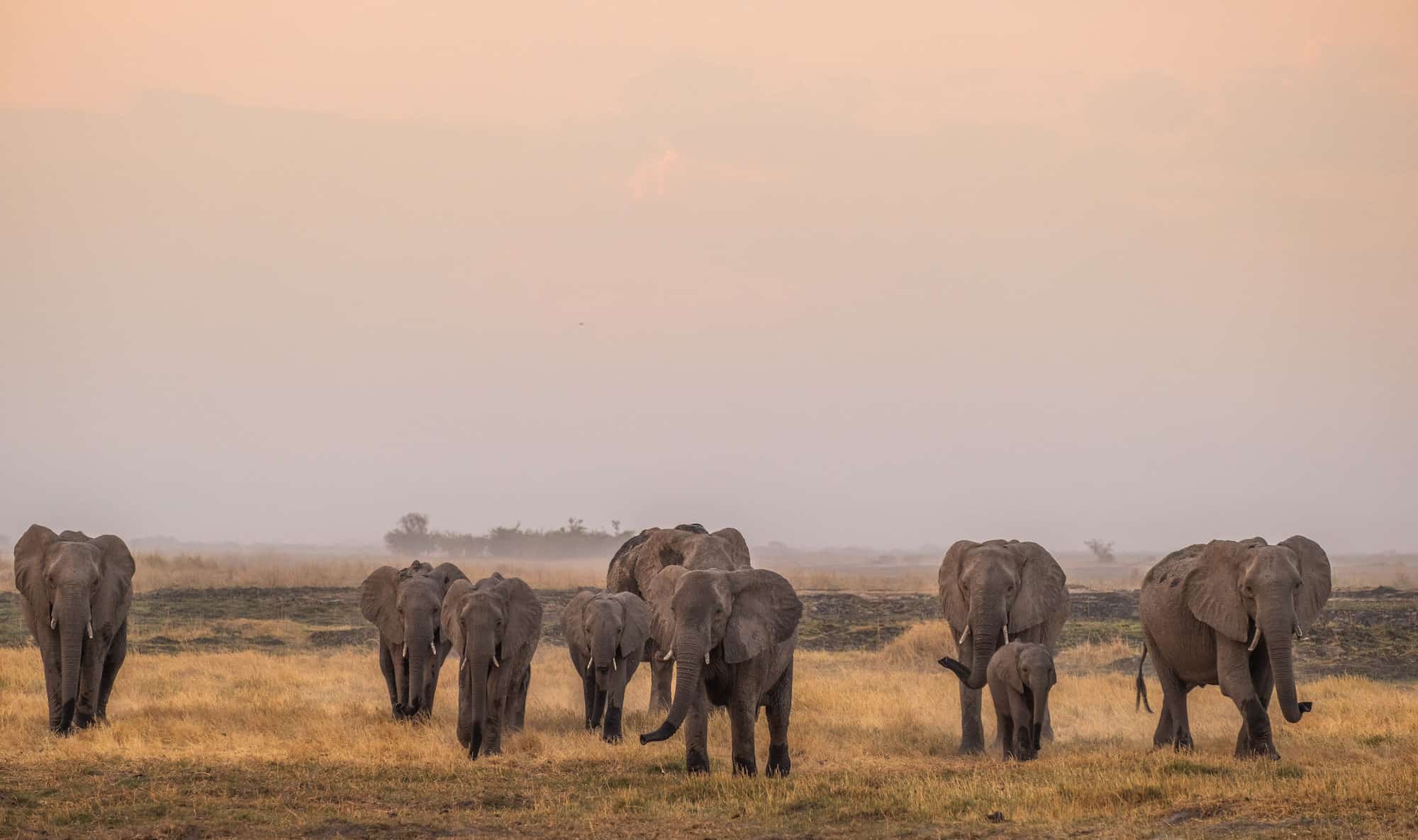
The whole region is referred to as the Greater Chobe as the monstrous section of Botswana features no fences that allow for animals to migrate freely which extends as far as Angola, Namibia, Zambia, and Botswana. It’s all tremendous area to go on safari which includes African Bush Camp’s private Linyanti Concession further North.
It’s most notable feature is the Khwai River that flows through the concession and provides riverine forests, floodplains, and marsh. Along the channel, you can find large populations of red lechwe, crocodiles, waterbuck, and hippos. Outside of the channel, you’ll find dry woodlands with plenty of antelope, giraffe, buffalo, lions, leopards, hyenas, and elephants.
Khwai Tented Camp

The rustic and charming Khwai Tented Camp sits on a dry water pan that fluctuates between dry and lagoon, dependent on the season. It’s a relaxed camp with six tents and a large raised deck with a lounge, bar, and dining area. It’s all stylish with small decorative touches of African artifacts and a number of places to relax.

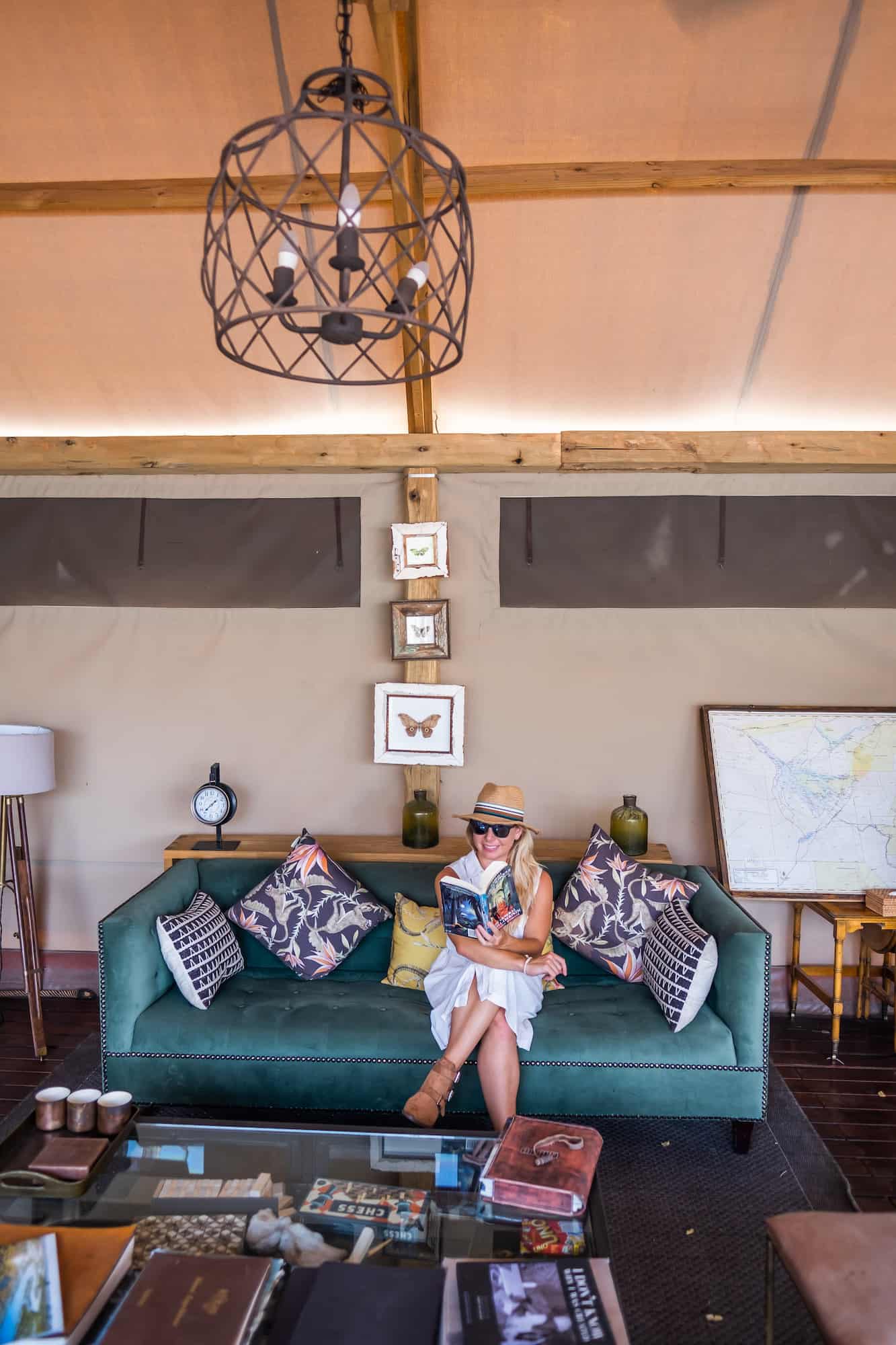
With large open sides to the lounge, surrounding woodland spills right in with frequent wildlife sightings and visitors in camp. During our visit, we had the great fortune of enjoying our morning coffee with elephants. It’s small footprint and number of tents retains all of the romance of safari. Evenings at the Khwai Tented Camp are lit by oil lanterns and enjoyed with fireside conversation.
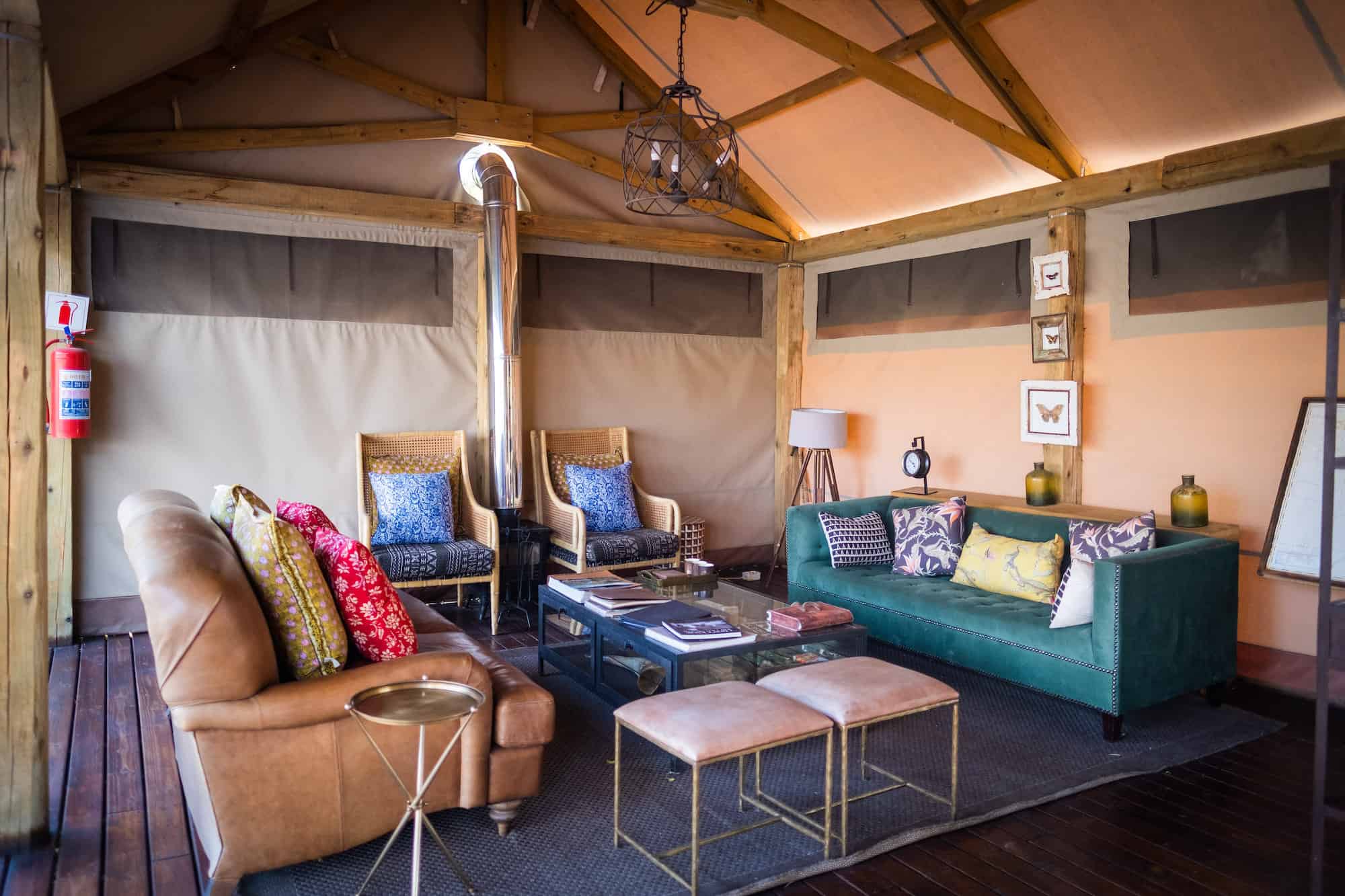



Tents at Khwai Tented Camp leave you without any needs. It’s a “tent” with a hot water shower, his and her sinks, king bed, desk, and a flush toilet. These amenities that ensure comfort in such a remote setting is impressive. The canvas tent felt simple and elegant with small furnishings that provide style without feeling out of place.

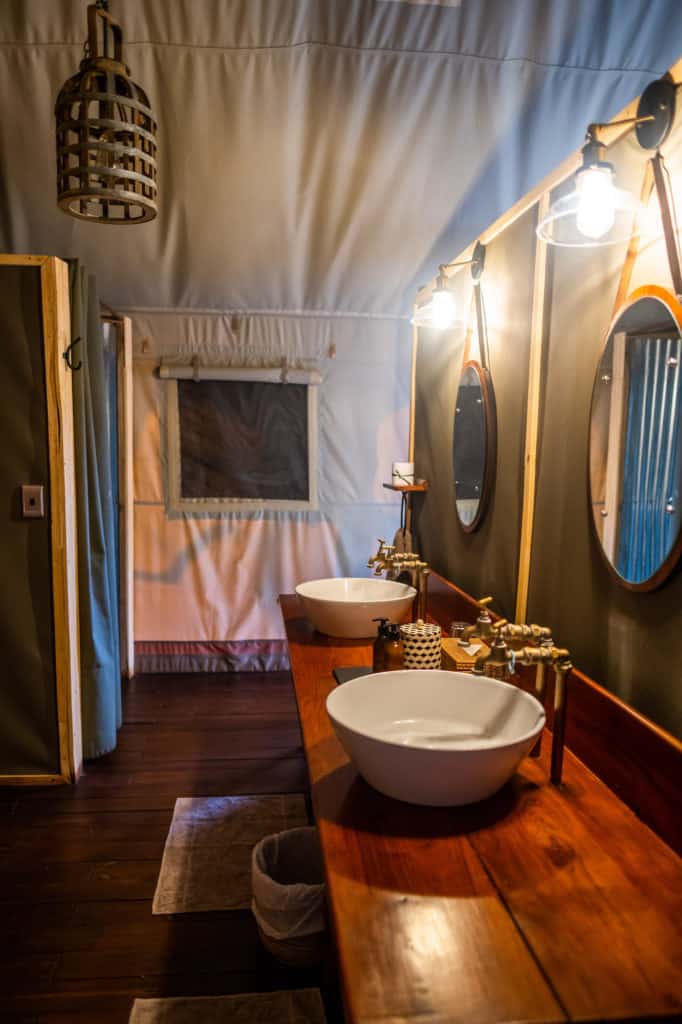

All of the six tents along with the lounge sit on wood stilts which leaves minimal impact on the environment. As the camp can be removed with little trace left behind. An important element that allows the camp to succeed in harmony with its wild setting.
Typical Day on Safari in Khwai

- 05h30 – Wake up call
- 06h00 – Light bush breakfast
- 06h30 – Depart on morning activity. We recommend doing walking safaris in the morning as after about 9:00 temperatures will get too hot to walk.
- 09h00 — Bush Coffee
- 11h30 – Return from morning activity and get ready for lunch.
- 12:30 – Siesta time! Now is the perfect time to relax or read a book.
- 15h30 – Afternoon tea and coffee
- 16h00 – Head out on afternoon activity. Usually accompanied with sundowner drinks
- 19h00 – Return from afternoon activity and relax with drinks before dinner.
- 20h00 – Dinner time!
- 22h00 – Sleep! It’s been a long day on safari
Khwai Tented Camp Rates
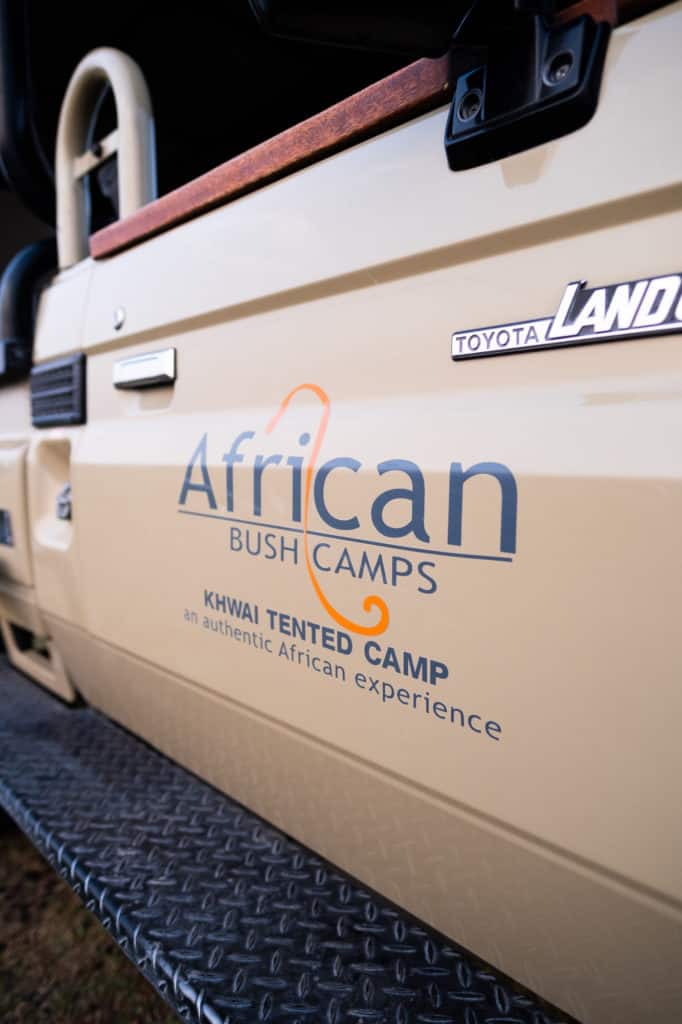
We really appreciate the openness of African Bush with a clear explanation of rates for booking their camps on their website. Unlike many safari companies in the region, they accept direct bookings and can help you plan the safari of your dreams. Find the rates below for Khwai Tented Camp in 2020.
Green Season
- Jan / Feb / Mar / Dec
- USD 580 per person per night
- Child (7-11): USD 290
Mid Season
- Apr / May / Nov
- USD 685 per person per night
- Child (7-11): USD 343
High Season
- Jun / Jul / Aug / Sep / Oct
- USD 970 per person per night*
- *Single supplement of USD 220 applies
- Child (7-11): USD 485
General Info for Traveling in Botswana
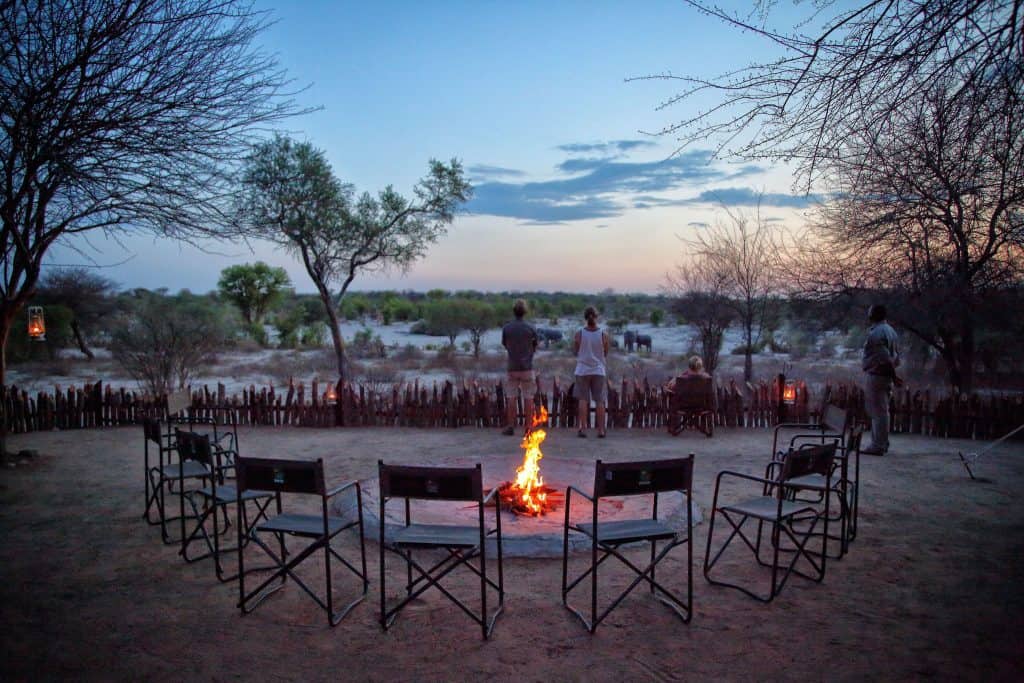
Visas to Botswana
There is no visa needed for most nationalities. A visa for up to 90 days is offered on arrival for free. Your passport must be valid for six months and contain at least two blank pages.
Cash in Botswana
Having enough USD before you enter is sure to make life easier most camps operate on USD and the staff along with guides will happily accept USD as a tip. Pula is the national currency in Botswana. However, the word “Pula” literally means “rain” in Setswana. Botswana receives very little rainfall so the word pula is actually a phrase of delight. If you hear people screaming or chanting pula it means something great has happened! It also brings new meaning to the phrase “making it rain.”
People in Botswana
The people of Botswana are not known as “Botswanans,” but instead they are Batswana or Motswana (singular). In case you were wondering the Batswana are friendly and accommodating people with a great pride for their country.
Want To Know More About Botswana?

We drove around Botswana and love the people and the country. Read more about travel in Botswana!
What to Pack for an African Safari

Packing the right safari clothes is always a good idea, but it’s never essential because you can wear whatever you want. We also go in-depth on the best women’s safari clothes!
Plan Your Trip to Africa
- Travel Insurance: We don’t travel without travel insurance and neither should you. You never know what can happen while traveling so it’s best to be prepared. HeyMondo provides excellent short-term and long-term travel insurance plans.
- Travel Waterbottle: When we’re uncertain about the water supply we use our Grayl Purifier. It’s come in exceptionally handy around Africa.
- Camera Gear: Chances are you’ll want a camera for your trip to Africa. We love the Sony RX100V for a pocket-size camera and the Fujifilm XT-4 for a professional camera. Check out our favorite cameras for Africa.
- Safari Clothes: Lightweight, beige, and moisture-wicking clothing are great for traveling Africa. See our favorite safari clothing here.
- Safari Hat: A good hat is both stylish and functional.
- Safari Bag: A durable bag is ideal for traveling around Africa.
- Safari Pants: We recommend neutral-colored pants as they’re great at hiding dirt and can match most shirt colors.
- Safari Shirt: Shirts like these are lightweight and keep the bugs away!
- Boots: While you don’t need to wear sturdy shoes every day, at least one pair of safari boots will make your trip nicer!
- Travel Adapter: You’ll need a special travel adapter for traveling to Africa. Get one before you get there so you don’t pay a premium on the ground.

